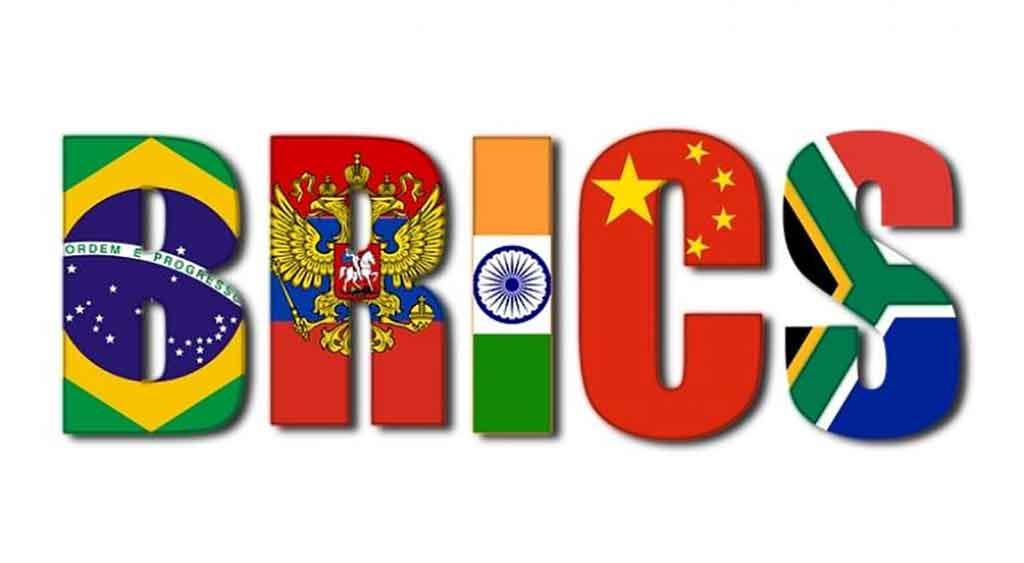The first thing that stands out is the long list of those interested in being part of the Brics or at least beginning a process to become an observer, although what should worry Washington the most are the requests to be part of its financial entity.
Saudi Arabia, one of the main oil producers in the world and in recent times with clear steps to get out of the subordination of the White House, expressed its interest in being part of the New Development Bank of the aforementioned quintet of countries.
On the other hand, the States of the Brics are reported with increasing force for curdling a mechanism to carry out their commercial transactions in the respective national currencies, in order to avoid the use of the dollar in this practice.
China, for its part, to reinforce its financial security, bought a total of 144 tons of gold from November to May, according to the People’s Bank of that Asian country.In fact, the tendency to set aside the dollar, if a common term is used in social networks, went viral among countries representing the so-called global south.
Many of these nations have already verified this option with agreements on the use of national currencies, such as those signed between India and Sri Lanka, or between China and Saudi Arabia to trade oil without using the dollar, something that would corner the so-called petrodollars.
The technical basis for a Brics currency already exists, but it requires political decisions that perhaps not everyone is in a position to make, says the Institute for Coordinates of Governance and Applied Economics.
If they do, it would be a first systemic attempt to compete with the global dominance of the US dollar and the beginning of the bipolar financial regime predicted at the time by the renowned Turkish economist Nouriel Roubini, affirms that scientific entity.
In addition, a recent study showed that the share of the Brics countries in the world economy exceeds some parameters shown by the Group of Seven (United States, Japan, Canada, Italy, United Kingdom, France and Germany).
The Purchasing Power Parity (PPP) of the Brics stands at 31.7 percent of the total in the world, above the 30.7 of the G7, indicates the aforementioned institute.
At the same time, the Brics’ contribution to world growth in the last five years reached 31.2 points, higher than the 25.6 contributed by the most industrialized countries.
This occurs before the expected expansion of the Brics can materialize after its upcoming summit, with the request to join more than 20 countries such as Türkiye, Iran, Saudi Arabia, Indonesia, Mexico, Argentina, Algeria and Egypt, among others.
The trend seems to confirm the quintet as an alternative for States that were even until very recently under US subordination, all this in the midst of the practices of sanctions and appropriations applied by the White House.
At the time, Russian President Vladimir Putin, commenting on attempts to use part of the 300 billion dollars from the Central Bank of Russia, frozen in Western countries, for other purposes, warned that this created a very negative precedent.
Many of the nations that once relied on having safe accounts in Western banks are now adding more doubts and looking for other ways to avoid risks, because, as analysts say, you never know when they will become enemies of Washington.
Unlike the practices of the Group of Seven summits, where a lot of time is spent planning sanctions or blockades for countries like Russia or China, the Brics talks about development, investment and cooperation plans.
The New Development Bank, created in 2015, contrary to the International Monetary Fund, avoids presenting socioeconomic demands for the future beneficiary States, an example that in the West demands a media counteroffensive, like the one currently underway.
Many experts in Washington, Berlin or London warn that one of the nightmares that should never have occurred, as the veteran politician Henry Kissinger affirms, that is, the association of Russia and China, now puts stubborn American hegemonism against the wall.
Thus, for example, the first German security doctrine considers that China tries in various ways to reshape the existing rules-based international order, the content of which the West avoids explaining.
Berlin estimates that Bejing “claims regional supremacy more and more aggressively and repeatedly acts against our interests and values”, an argument that should not be reason for sanctions or containment strategies at all, according to international law.
Europe pressures or exhorts others in a very peculiar way to join its economic war against Russia and to contain China, just as the president of ther European Commission,
Ursula von der Leyen, seemed todo on her recent Latin American tour. But if you look at the list of participants from 75 countries in a new edition of the St. Petersburg International Economic Forum or the list of candidates to enter the Brics, the nightmare of the United States and Europea concern are far from dissipating.
ef/ro/to









